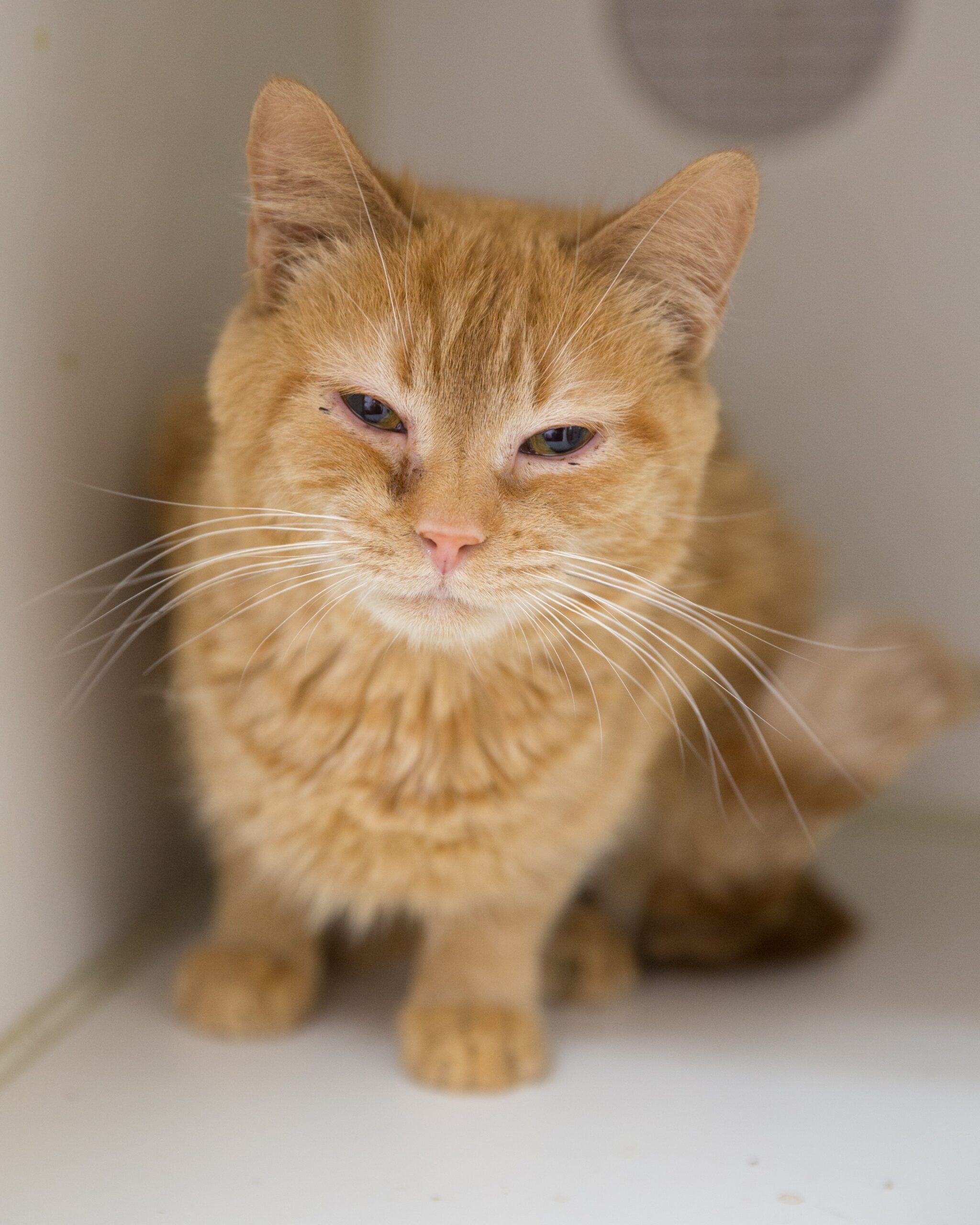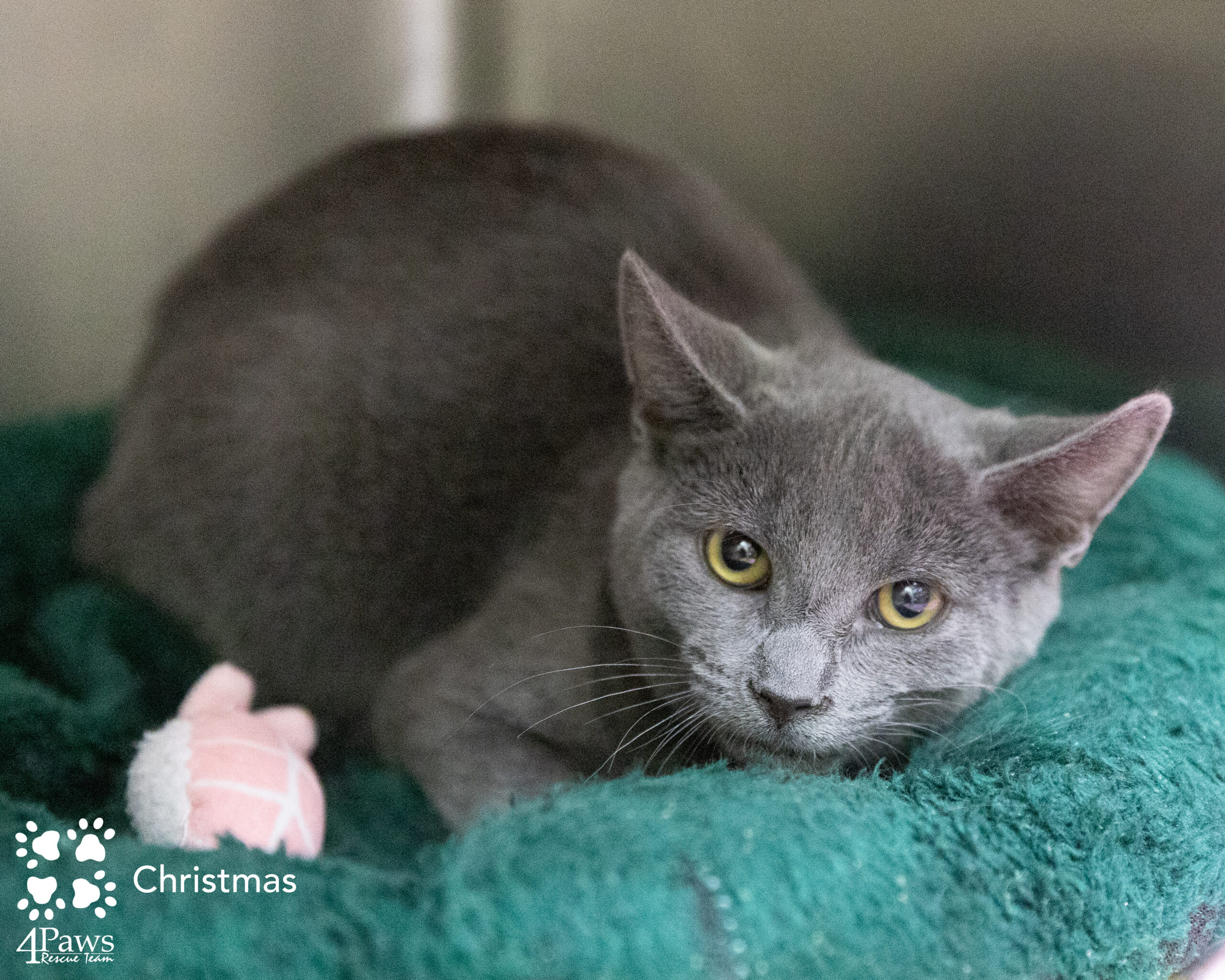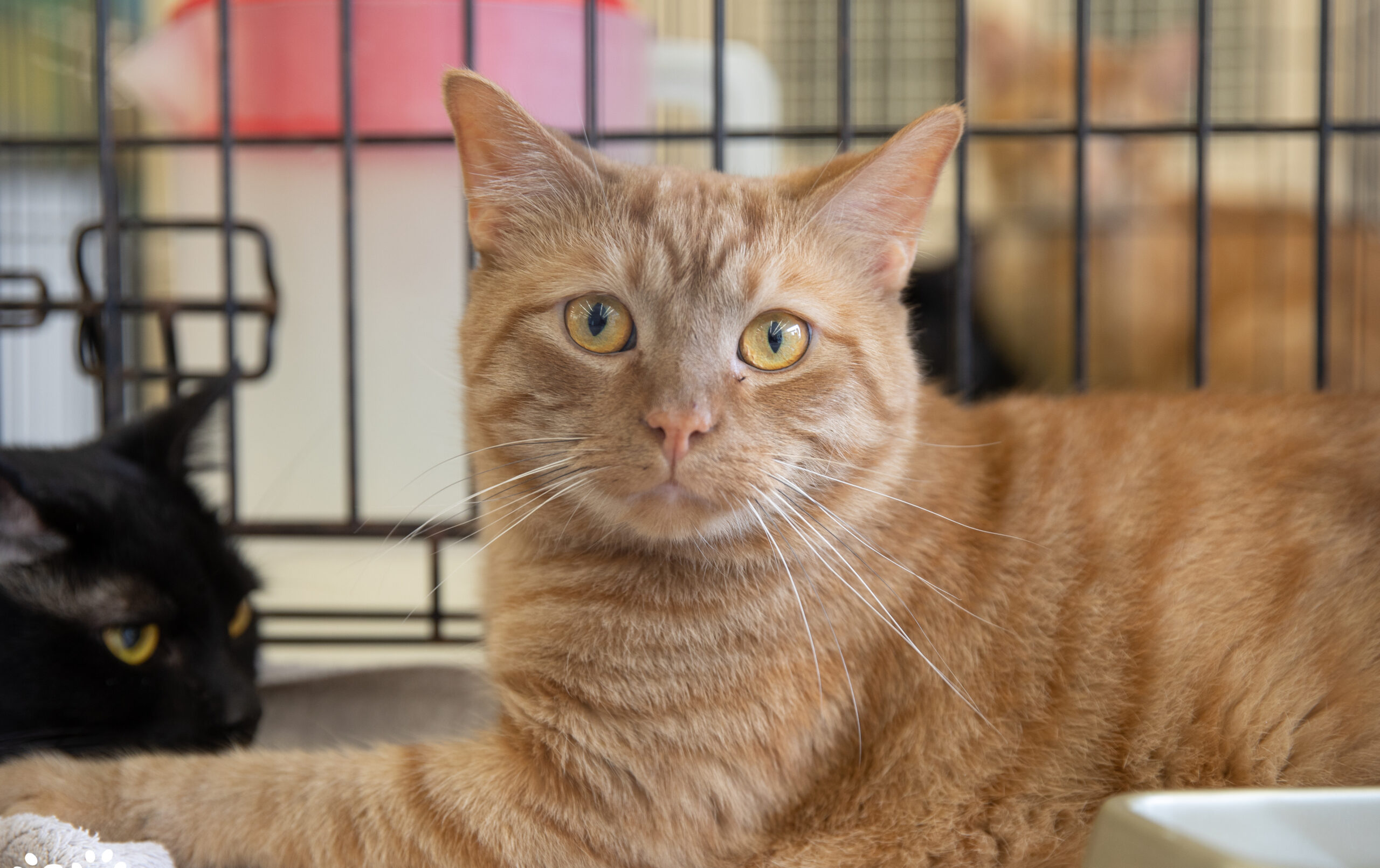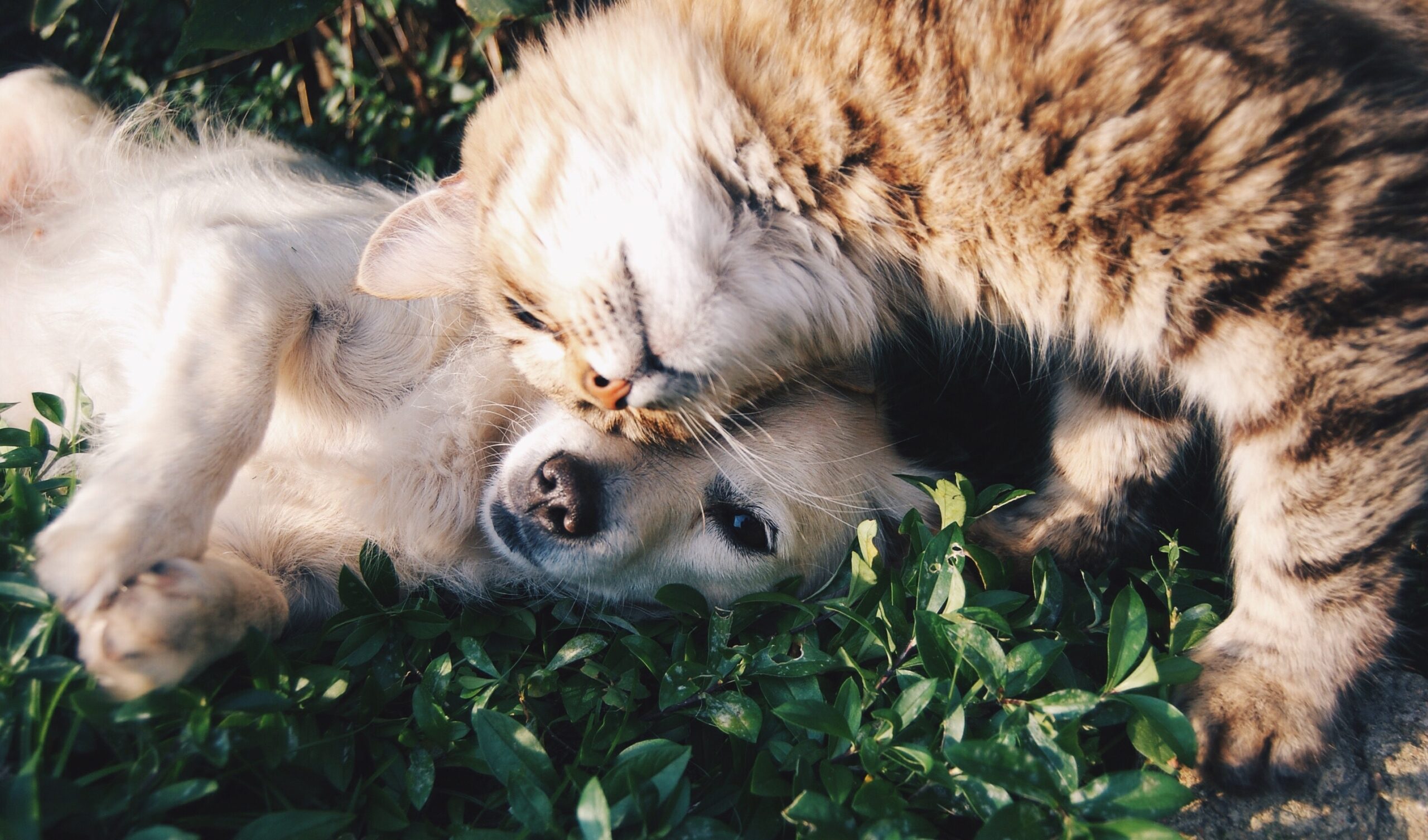In recent years, feline ages and life-stages have been redefined. Cats are now considered to be elderly once they reach 11 years. Senior cats defined as those aged between 11-14 years and super-senior cats 15 years and upwards. Our older kitties need extra attention and care. Here are 10 tips to make sure that your senior citizen is doing well.
1) Schedule Regular Wellness Checkups. Cats need to visit the veterinarian more often as they age, even if they appear healthy. Cats age much faster than people and a checkup every 6 months for cats 10-15 years old and every 4 months for cats over the age of 15 is recommended for optimum health maintenance and early detection of disease.
2) Set Your Senior Cat Up for Success. The start of your cat’s veterinary visit begins at home. Focus on reducing the stress of getting your cat into the carrier and allow plenty of time to arrive for your appointment so you are unhurried and calm.
3) Prepare Before the Veterinary Visit. There are several things you can do between visits to your veterinarian to help ensure the trip is a productive one:
– Bring a list of questions or concerns to ask your veterinarian at your cat’s wellness checkup.
– Write down all foods your cat is eating including treats, brands fed, and amounts.
– Provide your veterinarian with a complete list of any supplements or medications you are giving your cat, including preventives.
– Try to record videos of any concerning behaviors or mobility issues observed at home to show your veterinarian.
– Complete any questionnaires your veterinarian shares with you ahead of time.
4) Learn your Cat’s Habits and Pay Attention to Changes. Cats are masters at hiding illness, so changes in behavior that might indicate an issue are often subtle and easily missed. If you notice changes, such as sleeping more or hiding, don’t ignore it! Speak up and tell your veterinarian.
5) Beware of Changes in Weight. Both weight gain and unplanned weight loss require a visit to your veterinarian. Weight gain can make your cat more likely to get chronic diseases and have a shortened life span. Weight loss in senior cats is usually a sign that something is wrong. Some of the most common diseases causing weight loss are hyperthyroidism, intestinal disease, and diabetes. Gradual changes in weight are hard to notice. Monitoring your cat’s weight is one of the most important reasons for routine examinations by your veterinarian.
6) Be on the Lookout for Signs of Pain. Pain can be hard to notice because cats try to hide signs of discomfort and illness from us. Any changes in behavior, energy levels, or sleeping patterns may be a sign your cat is experiencing underlying discomfort or pain. Your veterinarian can determine if your cat is suffering from arthritis and develop a treatment plan to make your cat more comfortable. If your cat has difficulty going up or down steps, does not jump like he used to, or isn’t using the litter box, talk with your veterinarian.
7) Look When You Scoop. Is your cat starting to miss the litter box or have “accidents” around your house? There may be a medical issue causing him to have these problems. Are your cat’s stools softer, harder, or changing color? Is he defecating daily? Not defecating or passing small amounts of hard stool are indicators of constipation, a serious medical issue. If attended to early, your veterinarian can help your kitty feel comfortable again. Has the amount of urine in the litter box changed? Even small changes in or around the litter box should prompt a call to your cat’s veterinarian as they can be indicators of serious underlying disease.
8) Create a “Senior Cat Friendly” Home Environment. Senior cats need some extra attention. Here are a few tips to make your senior cat comfortable and happy:
– Place resources (food, water, litter boxes, bedding) in multiple locations where your cat can easily access them. If your cat is having trouble jumping to favorite high surfaces, add steps or ramps for access.
– As cats grow older, they often need extra padding and warmth for comfort. Provide soft bedding at preferred sleeping and resting spots.
– Provide raised food and water bowls so cats with degenerative joint disease don’t have to bend to eat and drink.
– Help out with grooming by gently brushing or combing and keep nails from becoming overgrown with regular nail trims. The nails of older arthritic cats sometimes overgrow into the paw pads, and this is painful.
– Maintain a consistent routine.
9) Know How Much Your Cat is Eating. Senior cats are at risk of becoming underweight due to a decreasing sense of taste or smell, which can cause a lack of interest in eating. Make sure your cat has access to food resources and place food where your cat spends the most time, and in an area where your cat can eat quietly and calmly. Senior cats may prefer wide and low-sided food and water bowls that don’t touch their whiskers. If your cat becomes picky about food or is not eating, talk to your veterinarian right away.
10) Know Common Signs of Disease. General signs of disease may be hard to notice at first. Be aware of some of the more common signs of disease and consult your veterinarian if any of these are noted:
– Drinking more or less
– Increased or decreased amounts of urine, more frequent visits to the litter box, passing small amounts of hard stool, straining in the litter box
– Nausea or vomiting
– Decreased appetite, weight loss, or muscle loss
– Poor fur/coat and decreased grooming
– Changes in behavior including hyperactivity (unusual activity), anxiety, tiredness, or not using the litter box
– Abnormal swelling, skin masses (unusual lumps or growths)
– Sores that do not heal
– Bleeding or discharge
– Difficulty breathing, urinating, or passing stools
– Difficulty going up or down stairs, jumping, or walking
– Increased vocalization
Caring for your senior cat can be one of the most rewarding experiences you will ever have. Continue to provide physical and mental stimulation by petting, playing, and interacting with your cat in your special ways. We rely on our cats as much as they rely on us. Aging cats often crave more attention than they did earlier in life and spending extra time together will ensure you both get the most out of your cat’s senior years.
Monthly Tips: 10 Care Tips for Your Senior Kitty

Categories:



